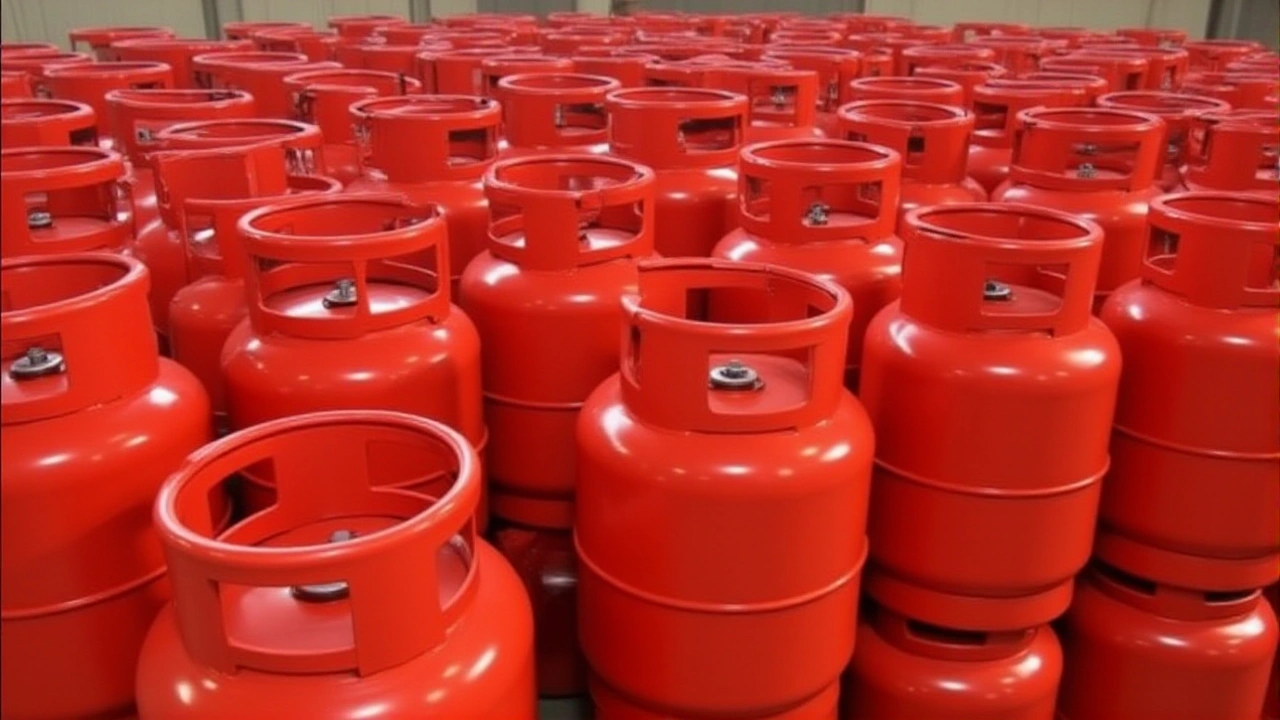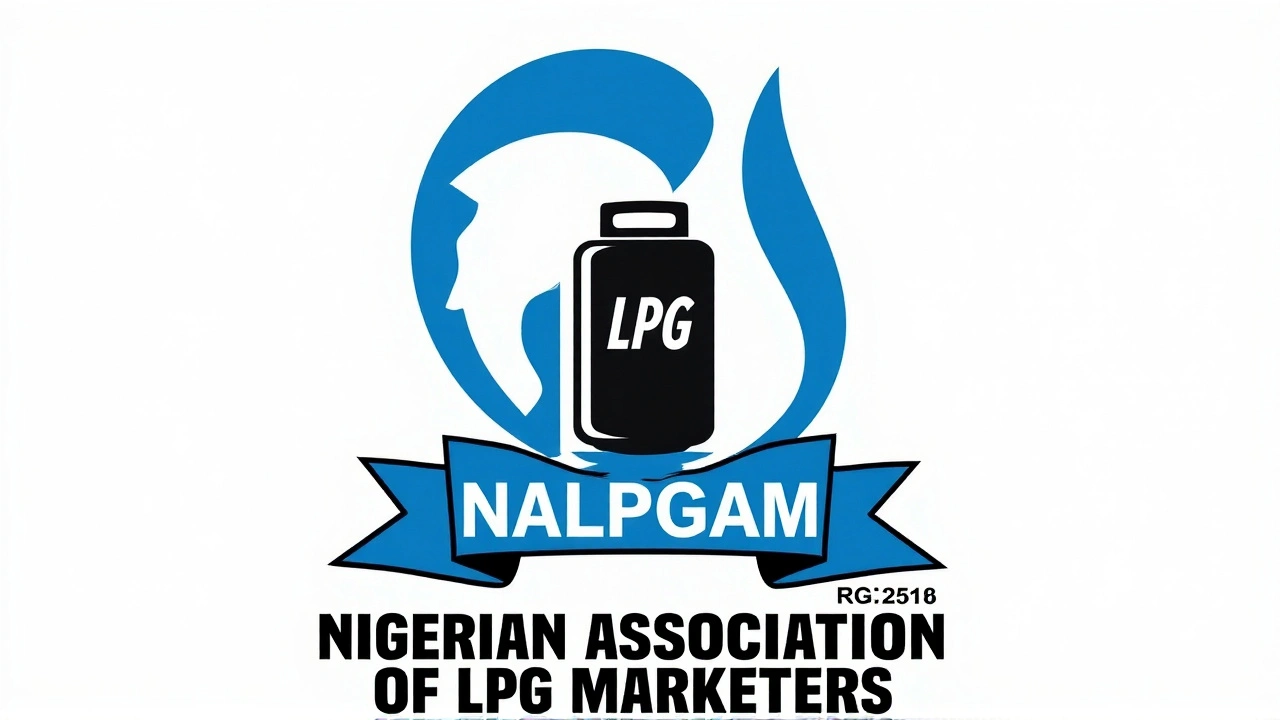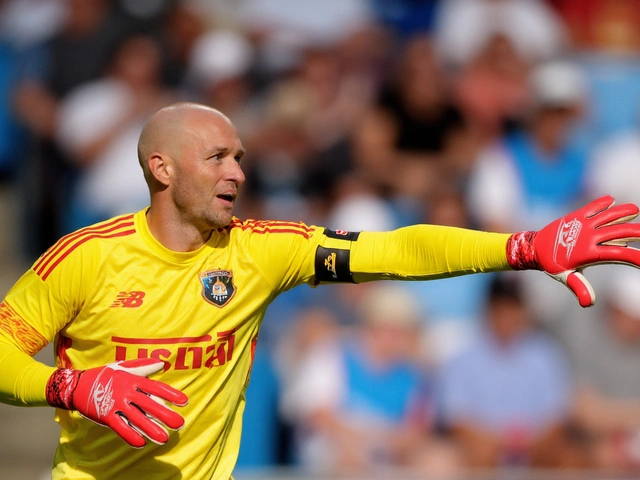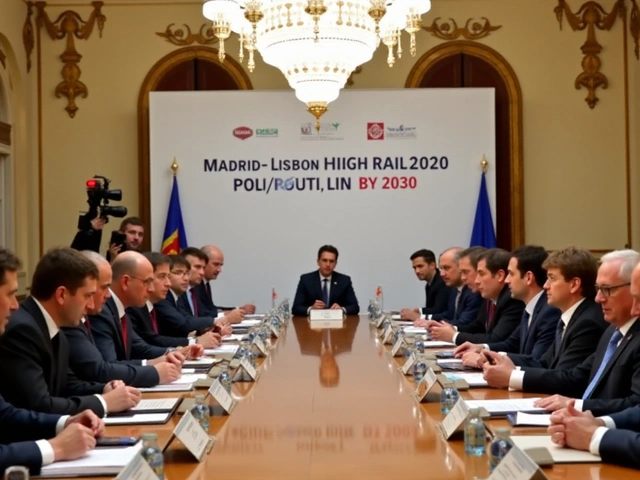When Dangote Petroleum Refinery announced on October 7, 2025 that it would lower its ex‑depot LPG price to N760 per kilogram, households across Nigeria breathed a sigh of relief. The cut shaves N50 off the previous N810 price and marks the refinery’s second major reduction in less than a month. Nigerian National Petroleum Company Limited promptly praised the move, saying it will help stabilise a market that has been buckling under severe scarcity. Meanwhile, Basi Isen, the Executive Secretary of the Nigerian Association of Liquified Petroleum Gas Marketers, warned that distribution bottlenecks linked to a recent labour dispute could still threaten the gains.
Background: Nigeria’s LPG Landscape
Cooking gas, or LPG, has long been a staple for Nigerian families, especially in urban centres where electricity is unreliable. Over the past year, retail prices have rocketed, with a 12.5‑kg cylinder costing as much as N25,000 in some cities – up from N17,500 just a week earlier. The surge stems from a perfect storm: rising global crude prices, dwindling domestic refinery output, and most recently, an industrial action by the Petroleum and Natural Gas Senior Staff Association of Nigeria that crippled logistics nationwide.
Dangote’s Price Cut Details
According to data from petroluemprice.ng, Dangote’s new ex‑depot price of N760/kg is now the lowest in the domestic market. By contrast, private depots such as Matrix and Ardova continue to charge N920/kg, while A.Y.M Shafa and NIPCO list prices at N910/kg. The highest price observed comes from Stockgap Depot at N950/kg, creating a price gap of roughly N150‑N190 per kilogram in favour of Dangote.
Why the bold move? Dangote’s spokesperson told journalists that the refinery has rebuilt its LPG storage capacity after the labour disruption, allowing a temporary surplus to be released at a lower price to ease market pressure. The company also hinted that the cut could serve as a “strategic stabiliser” ahead of the upcoming 2025‑2026 fiscal year, when government subsidies are expected to be re‑evaluated.
Industry Reaction and Competition
Nigerian National Petroleum Company Limited issued a statement calling the reduction “a welcome development that will support the domestic gas market amid ongoing scarcity issues.” The statement underscored the state’s reliance on private sector players to bridge the supply‑demand gap.
Other market players, however, are less enthusiastic. Ardova’s CEO, Chukwuka Eze, noted that “while we commend Dangote’s effort, the broader challenge remains a fragmented distribution network that inflates costs at the retail level.” He added that his company is exploring partnerships with logistics firms to improve last‑mile delivery.
Analysts at JB Wares & Coffey predict that if Dangote maintains the N760 price for at least three months, competitors may be forced to trim their margins, potentially igniting a price war that could benefit consumers but hurt profitability.

Impact on Households
For a typical family in Lagos, the price cut translates to roughly N1,500‑N2,000 saved per kilogram when compared to the market average of N1,850. Over a year, that could mean an extra N180,000 in disposable income – enough to cover school fees or a modest home improvement.
In regions like Dawaki, retailers reported prices as low as N1,200/kg (approximately N15,000 for a 12.5‑kg cylinder). Conversely, residents of Atan in Ogun State still face steep costs of N2,000‑N2,500/kg, with some informal sellers quoting up to N3,000/kg amid localized shortages.
Female market vendor Amara Okonkwo, who sells LPG cylinders in a Lagos neighbourhood, said, “The new price has helped me keep my customers happy, but I’m still worried about supply consistency. If the depot runs out again, we’ll be back to the old panic prices.”
Future Outlook and Policy Considerations
The labour dispute that halted the petroleum workers’ association’s activities is expected to be resolved by mid‑October, according to union officials. Once normal distribution resumes, experts say the market could see a brief period of price stability before seasonal demand spikes in December.
Policy‑makers are also debating a new regulatory framework that would require depots to publish real‑time price data, a move that could deter sudden price hikes and improve transparency. The Ministry of Energy has pledged to consult with the Nigerian Association of Liquified Petroleum Gas Marketers and major suppliers like Dangote before finalising any rule.
In short, Dangote’s price cut is a timely band‑aid, but lasting relief will hinge on resolving supply chain snarls, enforcing transparent pricing, and possibly expanding Nigeria’s refining capacity to reduce reliance on imports.
Frequently Asked Questions
How will the N760/kg price affect low‑income families?
Low‑income households typically spend around N30,000‑N40,000 a month on cooking gas. At the new rate, they could save up to N6,000‑N9,000 monthly, freeing cash for food, education or health expenses.
What caused the recent surge in LPG prices before the cut?
The spike was driven by a strike from the Petroleum and Natural Gas Senior Staff Association of Nigeria, which halted deliveries from major depots, creating a supply crunch that forced retailers to raise prices sharply.
Will other depots match Dangote’s new price?
Analysts expect competitive pressure to push some depots, like Ardova and Matrix, to lower their rates by at least N50‑N80 per kilogram, but a full alignment is unlikely until supply chains stabilise.
What steps is the government taking to prevent future shortages?
The Ministry of Energy is drafting a pricing‑transparency regulation that would require depots to update prices online daily. Additionally, the government is negotiating longer‑term contracts with local refiners to secure a steady LPG supply.
How long is the N760 price expected to last?
Dangote has not set a fixed end‑date, but insiders say the company will maintain the price for at least three months to gauge market response and ensure inventory stability.






10 Comments
Adrija Maitra
October 8, 2025 AT 01:50 AMWow, finally a breather for families trying to keep the stove lit! That N50 drop feels like a small victory in the middle of this gas chaos.
RISHAB SINGH
October 8, 2025 AT 02:23 AMNice move by Dangote, hope it sparks a ripple effect across the market. Keeping the lights on and pots boiling is what we need right now.
Deepak Sonawane
October 8, 2025 AT 02:56 AMFrom a macro‑economic standpoint, Dangote's price concession is a textbook case of strategic market penetration under duopolistic pressure. The reduction to N760/kg not only narrows the price elasticity curve but also leverages inventory surplus to preempt a potential demand shock in Q4. By undercutting competitors by approximately N150‑N190 per kilogram, Dangote is effectively recalibrating the competitive equilibrium, compelling rivals to either absorb margin erosion or risk market share attrition. Such a pricing maneuver aligns with the Cournot model where a dominant firm can dictate price thresholds to inhibit entry. Moreover, the timing coincides with the resolution of the PNGS staff strike, suggesting a deliberate synchronization of supply chain normalization with price signaling. The concurrent government deliberations on real‑time price disclosures further enhance transparency, reducing information asymmetry that previously inflated retailer mark‑ups. Nonetheless, the sustainability of this price floor hinges on the durability of Dangote's storage capacity overhaul; any logistic bottleneck could precipitate a reversion to pre‑cut pricing. Analysts should also monitor the potential for a price war cascade, as marginal cost structures of matrix and Ardova may force a collective price compression. While consumers will experience immediate welfare gains, the long‑run implications for profit margins and capital reinvestment in refinery infrastructure remain ambiguous. In essence, the price cut is a temporally bounded equilibrium shift rather than a structural market reform. Stakeholders must therefore calibrate expectations, acknowledging that the temporary surplus is a finite buffer. Finally, the broader fiscal context, including anticipated subsidy re‑evaluations for FY 2025‑2026, could either reinforce or undermine this pricing strategy depending on macro‑policy outcomes.
Suresh Chandra Sharma
October 8, 2025 AT 03:30 AMyeah dude the price cut looks good on paper but if the depot runs dry again we’ll be back to the same old panic buying. gotta hope their storage fixes actually hold up.
Saraswata Badmali
October 8, 2025 AT 04:03 AMWhile the popular narrative glorifies Dangote’s unilateral price reduction as a panacea for Nigeria’s LPG malaise, a more nuanced critique reveals structural myopia. The reduction is, in effect, a superficial price signal that masks deep‑seated inefficiencies in the distribution topology, which remain plagued by fragmented logistics and chronic bottlenecks. By merely adjusting the ex‑depot price, Dangote sidesteps the underlying issue of insufficient last‑mile infrastructure, thereby perpetuating a supply‑demand disequilibrium that will inevitably resurface. Furthermore, the temporary surplus leverages a transient inventory glut, an artifact of post‑strike replenishment, rather than a sustainable capacity expansion. In the absence of a coordinated regulatory framework mandating price transparency and depot accountability, competitors may engage in retaliatory discounting, engendering a race‑to‑the‑bottom that erodes industry profitability. This erosion could disincentivize capital allocation toward refinery modernization, paradoxically entrenching reliance on imported LPG. Moreover, the anticipated fiscal recalibration of subsidies in the 2025‑2026 budget could re‑introduce price volatility independent of any depot‑level pricing strategies. Hence, while headline‑grabbing, the price cut is a tactical maneuver, not a strategic resolution, and its efficacy hinges on ancillary reforms that remain conspicuously absent.
Piyusha Shukla
October 8, 2025 AT 04:36 AMDangote cut price but still not enough for many families
Shivam Kuchhal
October 8, 2025 AT 05:10 AMEsteemed community members, I wish to commend Dangote Petroleum for its recent price adjustment, which demonstrably alleviates economic pressure on households. It is my sincere hope that this initiative catalyzes further collaborative efforts among industry stakeholders to secure enduring stability within the national LPG market.
sangita sharma
October 8, 2025 AT 05:43 AMWhile applauding the gesture, we must also scrutinize the ethical dimensions of profit-driven pricing models that often marginalize the most vulnerable consumers.
shirish patel
October 8, 2025 AT 06:16 AMGreat, finally some relief!
srinivasan selvaraj
October 8, 2025 AT 06:50 AMIndeed, the reduction to N760 per kilogram constitutes a marginal improvement, yet it is imperative to contextualize this development within the broader supply chain volatility that has plagued the sector for months. The temporary nature of the discount, contingent upon surplus inventories, underscores the fragility of the current equilibrium. Moreover, consumer expectations may be inadvertently heightened, leading to potential disillusionment should subsequent price oscillations occur. It is also worth noting that the competitive response from other depots could engender a price war, thereby compressing margins to unsustainable levels and deterring future investments in refining capacity. Consequently, while this price cut offers immediate fiscal respite for households, it should not be misconstrued as a panacea for systemic inefficiencies. Policymakers must therefore prioritize infrastructural enhancements, transparent pricing mechanisms, and regulatory oversight to ensure lasting market stability. Only through such comprehensive reforms can the LPG market transition from episodic relief to sustained affordability.